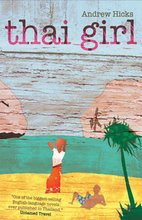
In Yunnan, a Hani grandmother smiles at us from her doorway.

High on the mountain, our bus stops to top up its radiator.

Misty light at dawn on the flooded terraces.

The mist filled the valley for much of the morning.

And it was difficult to stop taking photos.

It only needed figures in the landscape to take another one.

This old lady was going to bring in her ducks for the night.

Breakfast was with all the other visitors in the kitchen.

A buffalo's bottom, an old crone and pigs in the mist.

An old man sharpens his scissors on a stone.

I’ve seen a few rice terraces in my time in Nepal, Bali and the Philippines but for sheer scale they are all dwarfed by the Yuanyang rice terraces in Yunnan province in S.W. China that Cat and I have just visited with our friends, ‘American Bill’ and ‘Chinese Denise’.
Our trip had started with a night in the atmospheric center of Jianshui. (Scroll down for the pictures). In the morning it was noodles in the street and then many hours in a small bus over the mountains to the rice terraces. The roads were a miracle of engineering, with long snaking hairpin bends taking us to terrifying heights with thousand foot drops and no guard rails. Meanwhile the overloaded bus, its roof piled high with luggage, bumped and swerved and brought us close to the brink. Soon we came to a grinding halt and the reason became clear. The tortured springs had collapsed under the strain and we were left miles from anywhere waiting to be rescued by another bus.
Soon we saw the Red River thousands of feet below us, passed the spectacular barrage which dams the gorge and arrived in the bleak modern town of Nansha. Here we booked a comfortable taxi all the way to the terraces, but at Xinjie, the old town on the hill, we were told to get out and join a mini-bus. This was driven by a middle aged woman who was surely on speed.
After a terrifying journey through the mountains she stopped abruptly and told us to get out and walk. The village and guesthouse we had booked was, she said, a few hundred feet down the hill and there was no road. This seemed unlikely and a raging argument erupted during which we were threatened with death and worse besides.
Shouldering our heavy packs, walk we did, not knowing where we were going, until a nice lady said she’d only show us the way if we gave her 20 Yuan, a good day’s wage. When we got to the square concrete guest house which was still half building site, we were shown our bare room with six beds for a price that would buy four star luxury in Thailand. Then we went off into the village to look for food but there wasn’t any. It was to be eating in the guest house or nothing.
It’s strange though how even after two days travelling and a bad start, things can quickly warm up and we really enjoyed our two days there in the mountains above the spectacular rice terraces. The family who ran the place were pleasant enough, and even if they were milking the New Year festival for all they could get, they produced mountains of edible food for all their visitors who were an interesting crowd.
The village itself was very strange. Apparently designated as a tourist village, all the houses had been painted in a pleasant shade of pale shit brown and fake thatched roofs had been stuck on top of the tiles. From a distance it looked quite quaint, though totally unauthentic, while inside it the daily life of the farming families went on as usual.
The first day dawned with the valleys full of cloud and we took a long walk down into the terraces in the grey mist of the morning. There was nothing artificial about all this though and we saw rural life in the raw, much as it has been going on for centuries.
The terraces were flooded but not planted and were quite remarkable, an extraordinary feat of civil engineering created over many generations. And the villages, in part of well-made mud brick, were exactly what the tourist hopes to see, a vision of a traditional life with black pigs and buffaloes, children brightly dressed for the festival, men tilling the soil by hand and the duck lady going out to bring her ducks back at night. It was National Geographic in 3D, with smiling locals, buffalo dung, sounds, smells and all.
These were not Han Chinese but the Hani people, one of many minorities who make up a large proportion of the population of Yunnan. What their history was and how they got there I have no idea. Perhaps more powerful peoples had driven them from the lowlands into the mountains many centuries before where they had since had to survive in these unforgiving mountains. How they had created such stupendous terraces and generated so large a population and substantial villages is a tribute to their ingenuity and it should command great respect.
Nor do I know how their relationship with the men from far away on the plains now stands. All I can say is that the Hani seem to be worlds apart from the China of the industrial lowlands and big cities. Up on the road behind our village there was a viewing platform and at dawn perhaps thousands of Chinese holidaymakers came, like us, to see the terraces and the human zoo of the minority peoples.
They had come in their big, plush cars and SUVs, sporting smart clothes and shoes and cameras with long lenses to capture the light on the terraces at dawn. And for this privilege of looking down the mountain they had paid 70 Yuan each, a fee that would not be cheap even in the West. Then with the short official break over, they’d pile into their cars and go back home for another year’s work.
I marvelled at this transformation of China from the poor country I’d first seen in the seventies, now with its confident and expanding middle class even in far Yunnan, out for a good holiday in the mountains. I wish them well and I admire them for becoming prosperous in so short a time. Somehow though, this place where one group of rich and mobile Chinese was so busy taking pictures of country people stuck in a nostalgic past seemed to encapsulate all the potential problems for the future.
How can China’s new found wealth be reasonably fairly spread and how can fringe minorities be included in the wider polity? How to respect and preserve their traditions and individuality but not in the process make them a mere spectacle for the majority to stare at? Such are the problems of modernizing a fast developing economy.
China claims to now have a middle class of 300 million people and from my brief glimpse of this far region I can well believe this to be true. In the next few years China will become the world’s biggest economy which is no surprise because until relatively recently it always was the world’s biggest. For China has always been the most populous country on earth.
While we were in Yunnan there certainly were a lot of people on the move. Even on the country roads to the terraces there were traffic jams. But of course the week we were there was the Spring Festival, the New Year when China stops work and everything closes down for a week of celebration. Like lemmings we were thus taking part in the biggest ever migration of mankind in the entire history of the world.
It was an interesting time to go, but boy, was it tough for Denise when she was trying to buy us bus tickets! I wouldn’t have liked to have done it without her.
Copyright Andrew Hicks The “Thai Girl” Blog March 2010





4 comments:
It would be interesting to know what Cats thoughts were about the lifestyle of the Chinese workers compared to Thais in a similar farming community.
Good post.
You inferred that the masses of Han chinese driving up the mountain staring at the Hani is symbolic of the class divide in Modern China. However with each of those Hans paying 70 yuan for staring privileges, it won't be long before the Hanis buy their own SUVs, drive down to the plains and stare at the Hans.
Cat thought their life working the flooded rice terraces looked pretty tough. WShe was quite shocked on evening as we watched a woman with a baby on her back come down perhaps 500 feet, collect her ducks in a basket and then climmb back up again. She was impressed though by the prosperity in the towns which often looks better than Thailand.
Yes, tourism will bring some money into the mountains but there's often a tendency for the big money to be controlled by the big boys from outside were the tourists come from rather then the locals. Ours was the only family with a guest house and there was no evidence of any other villagers participating directly in the new tourist economy.
Thanks for your thoughts,
Andrew
Sorry for my bad english. Thank you so much for your good post. Your post helped me in my college assignment, If you can provide me more details please email me.
Post a Comment